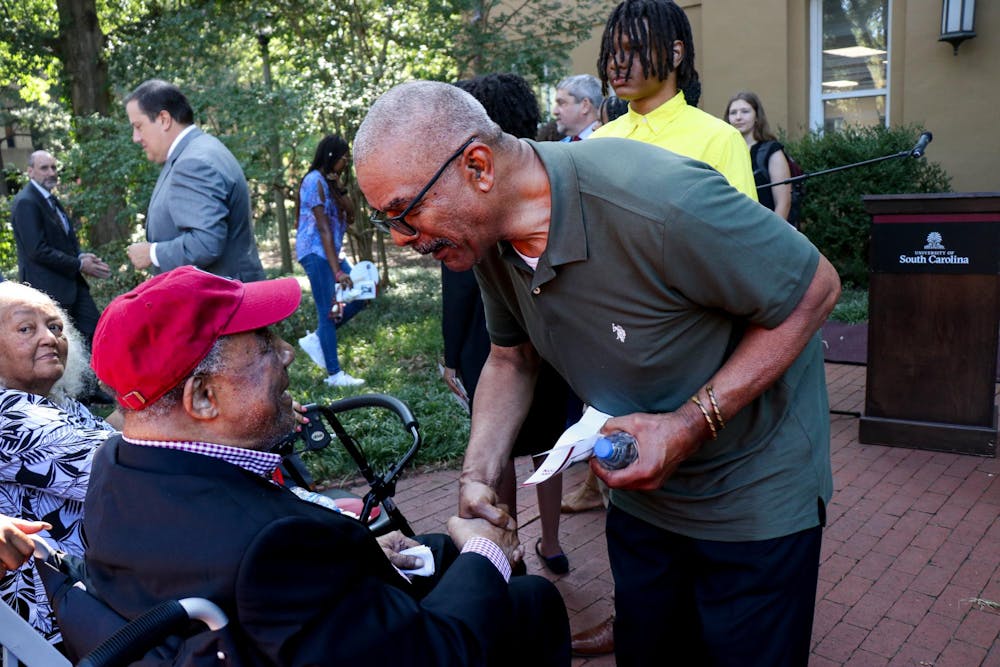Edray Goins spoke on USC's campus Monday to encourage Black students to pursue mathematics and shined a light on lesser known African American mathematical scientists who do not appear in many history books.
The lecture was part of an annual series to honor James L. Solomon Jr., one of the first three Black students to integrate the university in 1963 and the first African American student in the graduate program in mathematics.
In attendance was Carl Solomon, James L. Solomon Jr.'s son, who said that it takes the best and brightest of all students, regardless of race or gender, to make the University of South Carolina the best that it can be. He welcomed everyone to the lecture and thanked the mathematics program for honoring his father.
Goins, a professor at Panoma College and a visiting scholar for both Princeton and Harvard, said there is a significant decline in African Americans pursuing a Ph.D. in mathematics, but he hopes to see more Black mathematicians graduate into the field in years to come as the stigma of working in mathematics disappears.
“I hope that (students) are maybe more inspired to learn about more Black mathematicians to realize that there are a lot of stories to be told,” Goins said. “I’m just really hoping that if individuals are willing to go to the MAD pages site, they can find that information, or maybe they can just look up more names on their own to try to find out more."
Goins' goal, he said, is to break the negative connotation people have when they think of math, such as the idea that only a genius can succeed in the field.
"I think a lot of it's going to come down to changing the culture we have surrounding mathematics,” Goins said. “We place a lot of emphasis on, if somebody does math, we put them up on a podium, a pedestal, and we say that they are brilliant."
Goins said that you do not have to be a brilliant person to be able to do math. Students who are interested in math can train themselves to get better and advance in the field.
"Math is as natural as doing history and doing English. Everybody can do it," Goins said. "I think once we as a culture understand that about mathematics, then people will be less hesitant when going into math. And then I think the number of Black mathematicians will go up."
Goins' lecture and similar talks give students an opportunity to leave with information on a wide range of topics that they did not expect to learn, according to Matthew Boylan, the assistant chair of the mathematics department.
“Whether you’re doing math or physics or whatever, it exists in a larger societal context, and it’s done by people. ... Their stories are fascinating," Boylan said.
Carl Solomon said the goal is to do small things that affect others, that hopefully will spark in them some level of greatness.
“I hope that (students) would leave with the story of possibilities and greatness," Solomon said. “If they apply themselves, there are endless possibilities, endless opportunities. And I think, of all the bad things as you can talk about desegregation, the shining light is, we came through it, people got educated, that continues, and we can learn from those things.

